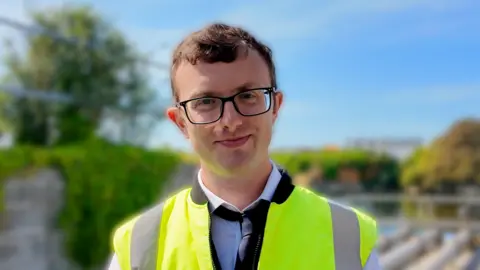Pesticide banned after traces found in reservoir
 BBC
BBCThe pesticide metamitron has been banned in Guernsey after traces of the compound were found in the island's largest raw water storage reservoir, Guernsey Water announced.
The chemical was found in a routine water quality sample taken at Longue Hougue Reservoir on the 27 February with the reservoir isolated from the supply while investigations were carried out.
Water quality risk manager Daffyd Griffiths said only a very limited supply of water could be used but rigorous testing schedules had detected the chemical early enough to protect the island's drinking water.
He warned if the current dry weather continued or another pollution incident occurred the island could face a water shortage.
He said: "We continue to urge islanders to follow guidelines when using any pesticide, that includes herbicides, fungicides and insecticides.
"Do not spray if rain is forecast, do not apply on or near streams, on hard surfaces or near drains.
"This includes road drains which often discharge into streams, and always ensure that any left over chemicals or containers are disposed of correctly."
The source has not been identified, but it is believed it may be the result of a single use somewhere within the water catchment area in the centre of the island.
Mr Griffiths said: "Water from Longue Hougue is now having to be used in reduced volumes."
He said it was being diluted with water from other reservoirs and this and "carbon dosing at the island's northern treatment works, has resulted in metamitron being completely removed".
Mr Griffiths said: "The restricted use of Longue Hougue reservoir does impact our water resources position.
"With an exceptionally dry spring and the restricted use of 27% of the island's stored water, if the current dry spell of weather continues or another pollution incident occurs we could be facing a water shortage, and a requirement for usage restrictions as time goes on
"We would like to take this opportunity to remind islanders to always use water wisely."
Follow BBC Guernsey on X and Facebook and Instagram. Send your story ideas to [email protected].
